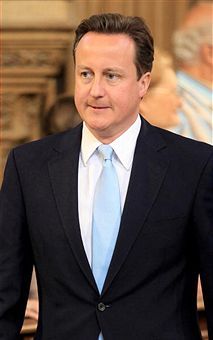 The results of the 1922 elections show that Conservative backbenchers are distinctly
right-wing and keen to assert independence. In the race for chairman, Graham Brady — the only man to resign under David Cameron’s leadership on an issue of party policy — romped
home by 126 votes to 85. This result suggests that Brady would have beaten Richard Ottaway even if Ministers had been allowed to vote.
The results of the 1922 elections show that Conservative backbenchers are distinctly
right-wing and keen to assert independence. In the race for chairman, Graham Brady — the only man to resign under David Cameron’s leadership on an issue of party policy — romped
home by 126 votes to 85. This result suggests that Brady would have beaten Richard Ottaway even if Ministers had been allowed to vote.
Brady’s margin of victory suggests that the new intake are an independent bunch as it was the worst kept secret in Westminster that Ottaway was the leadership’s preferred candidate. Indeed, one member of the new intake told me that he thought his colleagues had gone for Brady by a two to one margin.
Down ticket results were also good for the right. The two vice-chairman are Charles Walker, one of the first MPs to criticise the 55 percent rule, and John Whittingdale, Margaret Thatcher’s former PPS. The defeated candidates for the post were Nicholas Soames, who was one of the earliest backers of Cameron’s leadership bid, and Peter Bottomely, who is on the left of the party.
The two secretaries elected are Christopher Chope, who has led the charge against 55 percent—speaking against it in the Chamber last night, and Mark Pritchard. Pritchard’s website states that ‘Mark has also not been afraid to speak out on other issues such as: British sovereignty, Sharia Law, protecting British customs, traditions, and values; the aged and the frail, and human rights, and freedom of speech and conscience issues’, which doesn’t leave much doubt about which wing of the party he’s on.
After the result was announced, Brady was diplomatic — he made no mention of Cameron’s attempt to effectively abolish the 1922 committee. But the Prime Minister would be well advised to pay heed to this result. The fact that the majority of those elected have already criticised the coalition gives a sense of the mood of the backbenches.







Comments